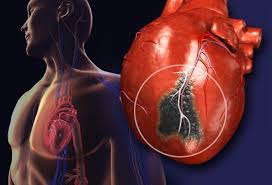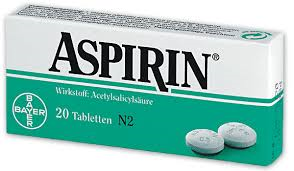When a lot of cholesterol is collected in the body, it forms a plaque balloon in the heart; this increases the risk of heart-attack. You never know when this cholesterol filled balloon will burst open. The moment it bursts, it will lead to heart attack.
During most heart attacks blood clots are formed in the arteries due to bursting of cholesterol plaques. These clots stop the flow of blood through the heart and the body.
Aspirin is the first aid for heart attack. It is an inhibitor of platelets.
If you know blood clot, you must know that blood clot is formed by clumping of platelets. Salicylate of aspirin prevents platelets from clumping together by inhibiting thromboxane B2 ; so no clot will be formed, despite that excess cholesterol in the heart. And the patient will get time to reach the hospital.
Chemistry: Thromboxane B2 (TxB2) is a metabolite which should be completely cleared in urine. During heart attack, TxB2 which helps platelet activation is collected in the body. Salicylate of aspirin enhances TxB2 clearance ——à so no platelet activation—à no clot formation—à no heart attack.
Aspirin should be placed under the tongue for quicker results, as researchers say. Within 5 minutes, TxB2 concentration is reduced in the heart.


